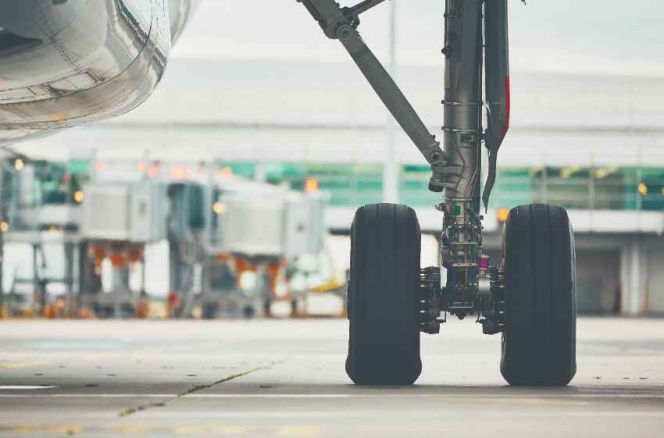
Some airlines may pay for their tyres by the retreads. There is an initial payment for the virgin tyre, and then a subsequent payment for the initial retread and further payments until the tyre account is settled. If the tyre fails prior to the final payment being made, then the tyre manufacturer wears the cost.
The secret (not so secret really!) to a successful retread programme is the pressure maintenance regime. If the appropriate pressures are applied to the tyre during its initial life, then we are able to deliver a sound virgin casing/carcass to the retreading plant.
In speaking with so many retreading facilities, they all detail a high rejection rate of casings submitted for retreading. The primary reason for rejection is the breakdown of the tyre’s structure as a result of under inflation.
So how does this affect the use of resources and subsequent emissions?
I have sighted figures purported to have been produced by the global accounting firm Ernst & Young (now EY), which detail a 70 percent reduction in natural resource extraction, 19 percent reduction in water consumption (potable water is one of the next global issues to deal with) and 21 percent reduction in air pollution. A truck tyre casing (say 11R22.5) that is retreaded will reduce oil consumption by about 50 litres – obviously more for a larger tyre.
Many tyre OEMs do promote the retreadability of their casings; it is just plain economic sense when you stop to think about it. Acquiring a product where you use 30 percent (by weight) only to then throw the rest onto the scrap pile is economic stupidity, but that is what seems to happen in most road transport organisations.
Maintaining tyre inflation pressures is too difficult, they say. Well, yes, if you are stuck in the 1950s where the only way to check inflation pressure was to use a manual gauge. In the 2000s, we started using tyre pressure monitoring systems (TPMS) to gain real time information about tyres in operation. Now we can stream data and identify issues such as binding brakes, wheel ends in failure mode as well as inappropriately inflated tyres. We’ve tuned operating tyres so that tyres operate in unison or as a team across an axle and so over the entire vehicle. Not being able to view tyre pressures in real time is so last century.

By tuning the inflation pressure of a tyre, the structural integrity can be assured so that when the tread worn tyre is presented at the retreading facility, it is accepted rather than rejected. Thus, a serious saving in resource use is generated; there is a substantial reduction in emissions as well as reduction in land use both from the initial growing of the natural rubber to the reduction of land fill.
A simple act can generate substantial savings. Why do so many educated people ignore this aspect? Why do bean counters not consider tyres in a holistic manner?
Purchasing a ’cheap’ tyre may appear to ‘save money’, but more often than not, the cost of operations actually rises. HOW? I hear the abacus jockeys cry! A low-cost tyre more often than not has a higher rolling resistance than a quality casing. Research and development costs, low cost operators that have copied or cloned don’t bear these costs. Consider the fuel burn over the life of a tyre, say 150,000 km. A two percent saving on the fuel burn equates to how much? When we consider the actual life of the low-cost tyre, more than likely it requires more maintenance, so there is more downtime, added rotations to gain the maximum wear from the tread package and then there is the disposal fee on the spent casing as it cannot be retreaded.
Considering tyres in a holistic manner is not something bean counters consider or actually even know about. Tyres directly influence the fuel burn of a vehicle, the wheel end life and the suspension life, even affecting the driver’s fatigue levels – not to consider the environmental aspects such as emissions and disposal.
So if an aircraft can take off and land safely on retreaded tyres, then why can’t on-road transport trucks use retreaded casings? It comes back to the neglect shown to the tyre during the initial life. It seems that people just don’t care; they don’t understand the criticality of appropriate tyre inflation pressures.
Within the Performance Based Standards for high performance trucks operating on Australian roads (think triple trailers running quad axles), there is a statement that succinctly details what a tyre contributes, to wit ;
“All the forces needed to both support and guide a vehicle ultimately arise in the area of contact between the tyre and the roadway. These forces are generated at the road surface in response to the deformation of the tyre structure.”
As tyre deformation is the product of inflation levels, there is a direct relationship between tyre inflation levels and vehicle safety. Why do people choose to ignore tyre inflation when it is so easy to monitor and comes with so many positive benefits?
So installing a simple regime of monitoring tyres in real time tyre casings to evidence that the tyres have not experienced a low pressure event (so destroying the casing’s integrity) means they can be selected for retreading. This eliminates the main excuse for not retreading, i.e. the rejection rate is too high. It is that simple!
A cheap tyre is not necessarily an economic positive. A well-maintained quality tyre will generate savings upon savings and then will also be able to do it all over again after retreading.
Many governments mandate the use of retreaded tyres on utility vehicles as it is well understood there is not only an economic benefit but an environmental benefit too!
If we, the global community, continue to consume resources without considering a reduction in the rate of consumption, then we’re doomed to exhaustion. Using a resource (read tyre) at only 30 percent and then disposing it of does not make any sense (nor cents!). Retreading of tyres is a sound practice based upon sound science. Why are so many businesses throwing their hard earned cash away because the abacus jockeys don’t know and don’t care about tyres?
Success does not reward a lack of effort. How much effort are your bean counters making in respect of tyres ?
- INDIAN TYRE INDUSTRY
- TYRE RETREADING
- BIS STANDARDS
- IS 15704
- ECE R109
- CIRCULAR ECONOMY
- MSME CHALLENGES
- AUTOMOTIVE REGULATION
- CARBON REDUCTION
- FREIGHT
- LOGISTICS
Retreading Hangs In Balance Over Regulatory Conundrum
- By Gaurav Nandi
- December 30, 2025
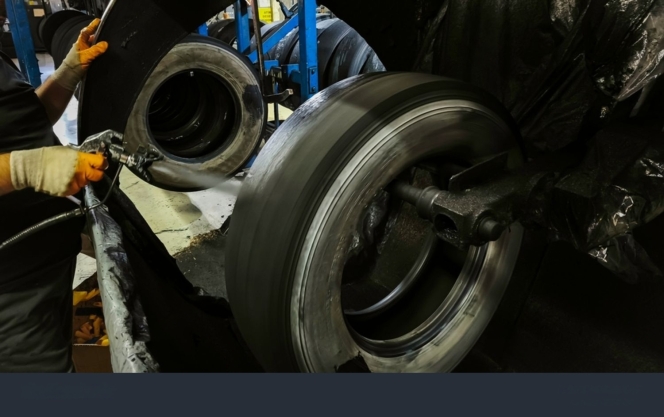
A population of over 1.4 billion people catapulting into the world’s third largest automobile market with four million trucks plying across a road network of 6.3 million kilometres supported by a USD 13.4 billion tyre market and a mining sector contributing around 2–2.5 percent of the country’s GDP demonstrate the strength of India’s automobile, freight and tyre sectors.
The story doesn’t end there as the Central Government adopts a strategic approach on reducing carbon emissions across these verticals, especially automobile and tyres, with targets such as the Net Zero Carbon Emissions by 2070, battery electric vehicles target by 2030, zero-emission truck corridors, Extended Producer Responsibility for the tyre sector; the list just goes on.
Amidst all such statistics and targets, a silent spectator remains the old and varied sector of tyre retreading. In a recent news story reported by Tyre Trends, the Indian Tyre Technical Advisory Committee (ITTAC) had made a proposal to Tyre Retreading Education Association (TREA) for mandating certain standards that will improve the quality of retreads. ITTAC has made recommendations to the BIS committee. TREA is part of the same committee. ITTAC and TREA are recommending different standards.
These standards included BIS retread standards, namely IS 15725, IS 15753, IS 15524 and IS 9168. The ITTAC had partially aligned Indian requirements with ECE R109, the European regulatory benchmark.
In a reply to the proposal, which was accessed by Tyre Trends, TREA urged the Indian Tyre Technical Advisory Committee to seek a deferment or non-applicability of BIS standard IS 15704:2018 for retreaded commercial vehicle tyres, warning that mandatory enforcement could cripple the sector.
In the letter, TREA argued that IS 15704:2018 is largely modelled on new tyre manufacturing norms and is technically unsuitable for retreading, which is a restoration and recycling process.
The standard mandates advanced laboratory tests such as spectrometer-based rubber analysis, endurance testing and compound uniformity checks, requirements that most retreading units, particularly small and medium enterprises, are not equipped to meet
The association highlighted that even large retreaders lack the infrastructure and skilled manpower needed for BIS-grade testing, while the sheer number of retreading units would make inspections and certifications operationally unmanageable for regulators.
TREA warned that compliance costs linked to machinery upgrades, audits and quality control could force 70–80 percent of units to shut down, leading to job losses, higher fleet operating costs and adverse environmental outcomes due to reduced recycling
Instead, TREA proposed that BIS prioritise retreading-specific standards such as IS 13531 and IS 15524, which focus on materials, process control, safety and quality consistency.
The body has also called for a phased transition roadmap, MSME support and industry training before any stricter norms are enforced, stressing that abrupt implementation would undermine the sector’s role in India’s circular economy.
The conundrum
India has a total of 36 administrative divisions comprising 28 states and 8 union territories. The tyre retreading sector has been continuously supporting circularity goals since the early 1970s across the world’s largest economy without getting mainstream recognition.
Even after five decades in service, the industry battles different bottlenecks including fragmentation, manpower shortage, tax pressures brought about by the recent GST revisions and now the implementation of such standards, just to name a few.
The sole practice that can simultaneously reduce carbon emissions from tyres and extend tyre life is assumed the nemesis of an ‘infamous and dangerous practice’ in some states of the country.
However, the industry has been drawing its techniques and quality parameters from the world’s oldest retreading economy, Europe.
“Big retreaders in India already have the necessary processes in place that conform to IS 15524 standards. However, as the standard is not yet mandated, we have voiced support for it because it is process-oriented and outlines how retreading should be carried out, including buffing and building procedures,” said TREA Chairman Karun Sanghi.
He added, “This standard focuses on how the work is done rather than imposing product-level testing that cannot be practically implemented. The current debate on IS 15704 stems from it being fundamentally incompatible. The standard includes requirements such as sidewall marking and destructive testing of retreaded tyres, which are impractical in a retreading environment where each tyre differs in brand, size, application and usage history,” he added.
Destructive testing, he argued, assumes uniform batch sizes. In retreading, where every casing is unique, testing even a single tyre would mean destroying finished products without yielding representative results. Applying such a framework would effectively require the destruction of every tyre in a batch, making compliance unviable.
“We have submitted our response to ITTAC and are awaiting feedback from the committee. We remain open to continued dialogue and will engage further once the committee responds to our submission,” said Sanghi.
According to him, a typical retreader processes about 300 tyres a month across multiple brands including MRF, JK Tyre, Apollo and Michelin and applications ranging from buses and trucks to mining vehicles. These casings vary widely in load cycles, operating conditions and duty patterns, often across several models from the same manufacturer.
The committee has cited European standard ECE R109, but Sanghi points to structural differences: “Europe is a global retreading hub where tyre manufacturers such as Michelin and Bridgestone dominate operations, collect their own tyres, retread them and return them to fleets, making batch-based destructive testing relevant. A similar model exists in US, where large tyre companies lead retreading and largely self-regulate without a single overarching standard. The Indian scenario is different, especially with a fragmented market.”
He stressed that the industry is not opposed to standards but to those that cannot be practically applied, warning that adopting European manufacturing-oriented norms without accounting for India’s market structure and operating realities would be counter-productive.
The debate is no longer about whether standards are needed but whether they are fit for purpose. Without accounting for India’s fragmented retreading ecosystem, enforcing impractical norms could dismantle a circular industry in the name of compliance.
TGL Season 2 Kicks Off With Hankook As Founding And Official Tire Partner
- By TT News
- December 29, 2025
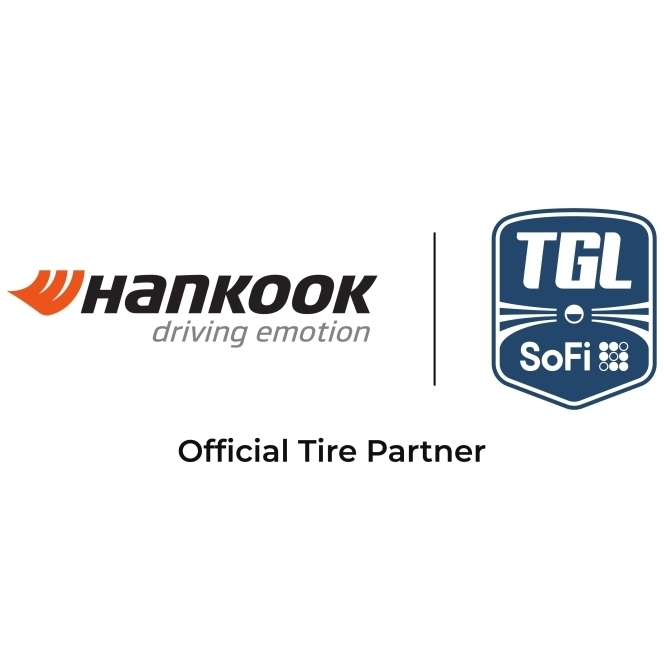
The second season of TGL Presented by SoFi, where Hankook Tire serves as the Founding and Official Tire Partner, commenced on 28 December 2025. This innovative league, a venture of TMRW Sports with backing from icons like Tiger Woods and Rory McIlroy, represents a strategic alignment for Hankook, uniting two entities driven by technological advancement. The partnership provides a global platform to reinforce Hankook's premium brand positioning across North America and worldwide through extensive visibility during broadcasts and at the state-of-the-art SoFi Center in Florida.
This unique venue embodies the league's fusion of sport and technology, featuring a massive simulator with a dedicated ScreenZone and a dynamic GreenZone. This area, equipped with a turntable and over 600 actuators, meticulously replicates real-world golf conditions indoors, creating an immersive arena experience. The competition itself is fast-paced and engaging, with teams of PGA TOUR players competing in Triples and Singles sessions over 15 holes. Innovative elements like the point-doubling ‘Hammer’, real-time strategy via ‘Hot Mic’ and a Shot Clock ensure a dynamic spectacle for fans.
The season opener presented a compelling narrative as a rematch of the inaugural finals, pitting the undefeated Atlanta Drive GC, featuring Justin Thomas and Patrick Cantlay, against a determined New York Golf Club squad led by Matt Fitzpatrick and Xander Schauffele. This match set the tone for an intensive season running through March, where six teams and 24 top golfers will compete. For Hankook, this partnership is more than signage; it is an active engagement with a global community, delivering a distinctive brand experience that bridges cutting-edge mobility and sport for enthusiasts everywhere.
Dunlop Secures CDP ‘A List’ Recognition For Climate Change And Water Security
- By TT News
- December 29, 2025
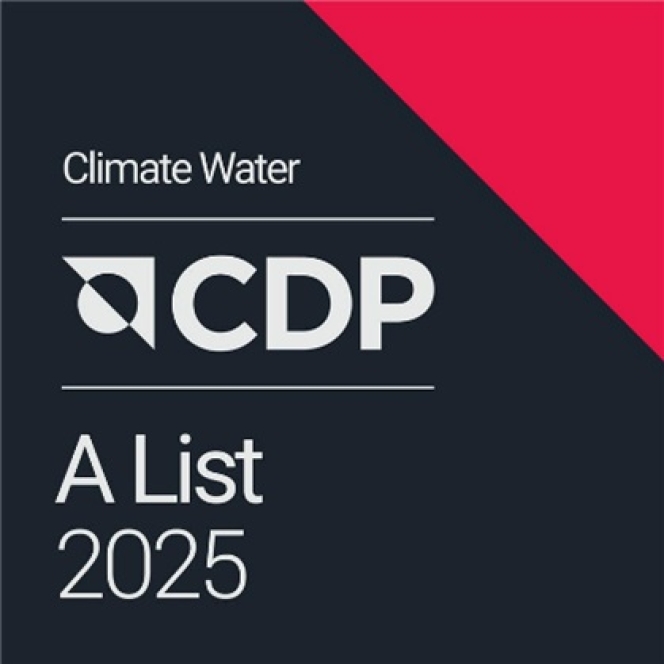
Dunlop (company name: Sumitomo Rubber Industries, Ltd.) has made its way to the annual A-List of CDP for climate change and water security. This premier designation, awarded for the first time to the company in the 2025 evaluation, recognises world-leading performance in transparency, risk management and environmental action. CDP’s annual assessment is a key benchmark for corporate sustainability across climate, water and forests.
This achievement stems from the Group’s integrated approach to material issues outlined in its corporate philosophy. It treats the interconnected challenges of climate change, biodiversity and the circular economy holistically, advancing concrete initiatives under its long-term ‘Driving Our Future’ sustainability policy.
On climate, the Group’s science-based emission reduction targets for 2030 are validated by the Science Based Targets initiative. Operational efforts include pioneering green hydrogen production at its Shirakawa Factory and developing tyres made entirely from sustainable materials by 2050. The company also works to reduce emissions across its supply chain, lowers tyre rolling resistance to improve vehicle fuel economy and extends product life through retreading.
For water security, the strategy is driven by localised risk assessments at global production sites. In seven facilities identified as high-risk, the goal is to achieve 100 percent wastewater recycling by 2050. Progress is already evident, with the company’s Thailand factory reaching full wastewater recycling in 2024.
These coordinated actions on multiple environmental fronts formed the basis for the Group’s simultaneous top-tier recognition in both critical categories from CDP.
Bridgestone Launches Co-Creation Initiative With Ethiopian Airlines Group
- By TT News
- December 29, 2025
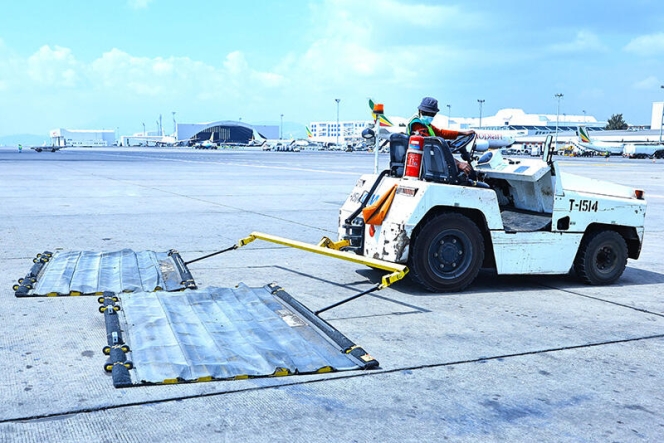
Bridgestone Corporation has initiated a novel co-creation programme in partnership with Ethiopian Airlines and Ethiopian Airports, focused on enhancing aviation safety at Addis Ababa Bole International Airport. This marks Bridgestone’s first sustained three-way collaboration with both an airline and an airport authority, targeting the reduction of Foreign Object Debris on runways and taxiways to support safer and more reliable aircraft operations.
The project was prompted by tyre-related incidents linked to debris at the airport, which previously risked disrupting flight schedules. Leveraging its specialised system for inspecting used airline tyres and analysing debris data, Bridgestone assessed conditions at the hub and proposed a tailored action plan. The company provided continuous support by analysing debris distribution patterns, developing visual hazard maps, advising on efficient collection methods and conducting training to raise awareness among airport personnel.
These sustained efforts have yielded significant results, substantially lowering the rate of tyre damage caused by runway debris compared to levels before the collaboration began. This reduction has supported improved on-time performance for Ethiopian Airlines while advancing overall operational safety. Additionally, the initiative has encouraged greater use of retreaded tyres, promoting economic efficiency and environmental sustainability within the airline’s operations.
Looking ahead, Bridgestone and Ethiopian Airlines Group plan to deepen their co-creation efforts, aiming to generate further value for the aviation sector and broader society through continued innovation and partnership.
Retta Melaku, Chief Operating Officer, Ethiopian Airlines, said, "At Ethiopian Airlines, the safety of our passengers, employees and aircraft is a priority. We are pleased to collaborate with Bridgestone to further strengthen our efforts in reducing FOD at Addis Ababa Bole International Airport and ensure safe operations at the hub airport."
Getaneh Adera, Managing Director, Ethiopian Airports, said, "We remain fully committed to upholding the highest safety standards at Bole International Airport at all times. This significant achievement in reducing FOD is the result of our strong commitment for safe operations and close collaboration with Bridgestone. Through our co-creation activities, we are pleased to have realised safer operations with enhanced productivity and economic value."
Jean-Philippe Minet, Managing Director, Bridgestone Aircraft Tire (Europe) S.A., said, "By combining the learnings and insights from Ethiopian Airlines' operational issues with our analysis technology and know-how, we have deepened our co-creation to propose customised solutions. We are delighted to contribute to safe aircraft operations with peace of mind and to improved operational productivity through the co-creation of efficient FOD reduction on airport surfaces. Through further expansion and evolution of this solution, we will amplify the value of our ‘Dan-Totsu Products’, trust with our customers and value of the data for creating new value."







Comments (0)
ADD COMMENT